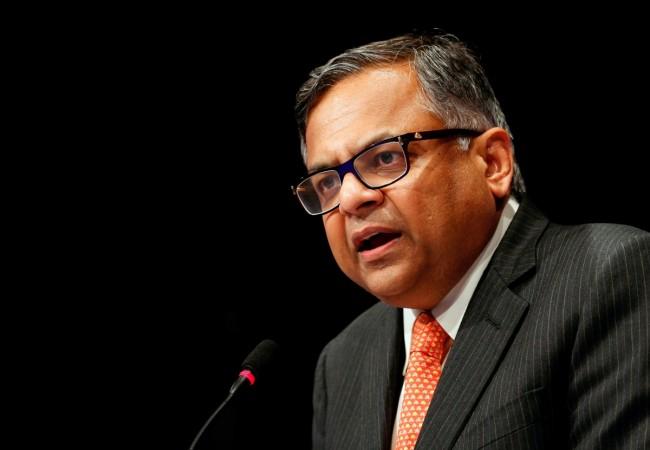
Even as he pushes further consolidation and a tighter ship at salt-to-software conglomerate Tata Group, Natarajan Chandrasekaran who heads the group, has said in an interview to Fortune magazine that he isn't pushing significant changes to his reporting relationship with the group trusts, which control 66 percent of the holding company.
The Tata Sons chairman told the magazine in an interview: "I am not briefing [them] on what we're doing with every single company. But they are the primary shareholder for the group. I don't think there is a conflict in keeping them informed."
Chandrasekaran took over as chief of the holding company of the multinational conglomerate in February this year. The 54-year-old is the first non-Parsi chairman of the 150-year old Tata Group.
The report said much of the House of Tata is in "urgent need" of renovation, with some of its biggest businesses growing sluggish and vulnerable to smaller, nimbler rivals.
There "definitely" will be a pruning of the Tata portfolio, Chandrasekaran said. "Tata is already a $100 billion group. To get to the next level we need scale. We can't do it with multiple small companies. We need top companies. I am not saying specifically that all companies need to be No. 1 or 2 [in their sectors], but we need to have top companies," Chandrasekaran said in an interview to Fortune magazine.
The Tata trusts are said to be among India's most generous philanthropic institutions. Large bequests from Tata Trusts helped found the Indian Institute of Science, devoted to developing the technical skills of India's youth, and the Tata Memorial Hospital in Mumbai, the nation's leading center for cancer treatment and research, the Fortune report noted.
Almost echoing his controversial predecessor Cyrus Mistry that the Tata group needs to work on shedding the extra flab in its company portfolio, Chandrasekaran has emphasised the group will not exit a business "just to get a headline", but only when it is certain it is not getting returns from it.
The magazine noted that Chandrasekaran is not ruling out sale of underperforming companies within the salt-to-software conglomerate. "One of my key messages is that we're going to look at performance for every operating company — growth rates, profitability, return on capital," he says. "You can't perform if you're not fit. If you want to run a six-minute mile, you have to bring your weight down."
The magazine noted that colleagues and investors hope Chandra can transfer to the rest of Tata some of the digital magic he sprinkled on TCS, where he tripled sales and profits during his seven years as CEO.
During Chandra's tenure, TCS — which derives 94 percent of its revenue from work for clients outside India—pulled far ahead of its two domestic rivals, Infosys and Wipro, the magazine said. The company reported net profits of nearly $4 billion on sales of $17.6 billion in the fiscal year ended in March.
"Chandra has vowed to reorganize the group to focus on growth and scale. Tata's corporate roster is rife with opportunities for consolidation, with multiple companies competing in the same segment. Even veteran Tata executives are hard-pressed to explain why Tata Finance, Tata Housing Finance, and Tata Capital Finance operate as separate companies," the magazine said.
The group's star performers continue to be TCS and Jaguar Land Rover. On the group's Nano car, Chandrasekaran stresses that Tata Motors will have other priorities.
"Passenger car sales are small, and within that, the Nano is even smaller. I don't think shutting down the Nano plant is a decision the team will make.














